#no thinker is free from the biases of their time
Text
Buffy has always been VERY intelligent and clever. She’s a quick thinker and very resourceful.
When Anya becomes a vengeance demon again Buffy doesn’t take action against her until she causes a massacre that also traumatizes a young girl so can we PLEASE stop this narrative of Buffy just easily and carelessly deciding to kill Anya?
Because not only was it not a quick and easy decision HER GOAL WAS NEVER TO KILL HER THAT’S WHY SHE GRABBED A SWORD SHE KNOWS SWORDS DONT KILL VENGEANCE DEMONS AS IS ESTABLISHED IN SEASON 6!!!!!
She recognized self destruction after heartbreak because of her own and Willow’s in season 6 and she knew talking with Anya would get her NO WHERE just like Spike trying to talk her out of turning herself in to the police when she thought she killed katrina because she believed she deserved to be punished and trying to reason with dark willow was completely pointless
She uses the fight to force Anya to confront the reality and what the consequences will be if she continues down this path while ensuring this fight won’t actually kill her. Buffy knows she can’t ignore this and she can’t waste time struggling with the decision of whether or not to kill her because she did that with Angel and so many more people died in the process.
BUFFY IS GROWN!!! SHE HAS LEARNED FROM ALL HER EXPERIENCE AND MISTAKES AND IT SHOWS!!!!!! But everyone is so used to her TORTURING herself over these kinds of decisions they’re unable to recognize she has gained the wisdom and experience to act instinctively and decisively even when no one else agrees because SHE KNOWS it’s right and that is always proven to be true!!!!!! She is finally not letting a bunch of people who are not the slayer tell her how to be the slayer because she never should have been listening to anyone else in the first place. She’s proven to be right time and time again with Spike, Anya, Caleb and y’all still are doubting her….. SHE KNOWS WHAT SHE IS DOING!!!!! AND IT ALWAYS ENDS UP BEING THE RIGHT CALL!!!!!!! How anyone can watch her owning her shit as a leader and a slayer clearly demonstrating the last 6 years of suffering weren’t for nothing as she is now confident in herself and her judgement and think she’s heartless or stupid or careless or biased I just CANT. USE YOUR BRAINS!!! LOOK AT THE ENTIRE CONTEXT OF THE SHOW IM BEGGING YOU FOR THE SAKE OF MY SANITY
It’s also the perfect way to show xander how cruel and heartless him always telling/shaming/guilting her to kill angel is at the same time. He finally got a taste of his own medicine and he couldn’t handle it even a little. She showed what a fucking hypocrite he’s always been because everyone else? If you love someone who’s done evil you’re a horrible person and they need to die but if it’s someone HE loves it’s different even though Anya has definitely caused more deaths than angel and spike combined and was forced to be good rather than it being her own choice and went BACK to being evil of her own free will after he actually fucked up and caused all of this in the first place while never taking any blame himself even though he blamed buffy for angel and spike’s actions any chance he could even the ones directed at her when the blame never lied with her in the first place
Y’all see a woman not torturing herself over every little thing and being confident and you’re like wow what a cold heartless bitch and that’s GROSS and just absolutely reeking of misogyny
#buffy summers#buffy meta#btvs meta#meta#buffy summers i love you#btvs season 7#anya jenkins#selfless btvs#season 7 ep 5#anti xander harris#xander harris I hate you forever until the end of time#btvs#buffy the vampire slayer
19 notes
·
View notes
Text
Was anyone going to tell me that Engels really hated the Irish or was I supposed to find that out for myself???
These are some really impressive anti-immigrant talking points:
The southern facile character of the Irishman, his crudity, which places him but little above the savage, his contempt for all humane enjoyments, in which his very crudeness makes him incapable of sharing, his filth and poverty, all favour drunkenness.
With such a competitor the English working-man has to struggle, with a competitor upon the lowest plane possible in a civilised country, who for this very reason requires less wages than any other. Nothing else is therefore possible than that, as Carlyle says, the wages of English working-man should be forced down further and further in every branch in which the Irish compete with him. And these branches are many. All such as demand little or no skill are open to the Irish. For work which requires long training or regular, pertinacious application, the dissolute, unsteady, drunken Irishman is on too low a plane. To become a mechanic, a mill-hand, he would have to adopt the English civilisation, the English customs, become, in the main, an Englishman. But for all simple, less exact work, wherever it is a question more of strength than skill, the Irishman is as good as the Englishman. Such occupations are therefore especially overcrowded with Irishmen: hand-weavers, bricklayers, porters, jobbers, and such workers, count hordes of Irishmen among their number, and the pressure of this race has done much to depress wages and lower the working-class. And even if the Irish, who have forced their way into other occupations, should become more civilised, enough of the old habits would cling to them to have a strong, degrading influence upon their English companions in toil, especially in view of the general effect of being surrounded by the Irish. For when, in almost every great city, a fifth or a quarter of the workers are Irish, or children of Irish parents, who have grown up among Irish filth, no one can wonder if the life, habits, intelligence, moral status -- in short, the whole character of the working-class assimilates a great part of the Irish characteristics. On the contrary, it is easy to understand how the degrading position of the English workers, engendered by our modern history, and its immediate consequences, has been still more degraded by the presence of Irish competition.
—Condition of the Working Class in England, 1845
Dirty, stupid immigrants stealing jobs? Revolutionary take
#nobody in the past is perfect but I feel like this at least deserves some fucking discussion#no thinker is free from the biases of their time#but wowza this is up there pretty high in the ‘all men are created equal’ from Thomas Jefferson for me#friedrich engels#marxism#ireland#uk history#xenophobia#racism#immigrants#immigrant rights
54 notes
·
View notes
Text
Haha you know what I've noticed I can't help but point out. Every time you see an article that expands on some idea or contains vital educational information (biased or not) from some major media outlet it's kept behind a paywall. But local news, free news, is all ads and tragedies. Poor people are being exposed to killings rapes and car crashes constantly while those who can afford it can peruse modern thinker's writings on current events
56 notes
·
View notes
Text
How Layover taught me self confidence
Or Why Biasing Kim Taehyung is good for your mental wellbeing
-----------
So I'm not even a year into being into BTS. I'm toddler army, I think since April? This video of the Sirius performance of Butter came up on my tiktok randomly and I Just Wanted To Know Their Names and now I'm here.
I didn't immediately bias Tae. I actually attached immediately to Jimin. I also thought Suga was grumpy and there was something going on between Jimin and JK cos I watched the official content and fell for the narrative 😇 (I wouldn't say I'm a former jikooker though. It lasted like a week then I got weird vibes from it 🤷)
I'm really into jazz and swing so Tae wrecked my bias with Le Jazz De V.
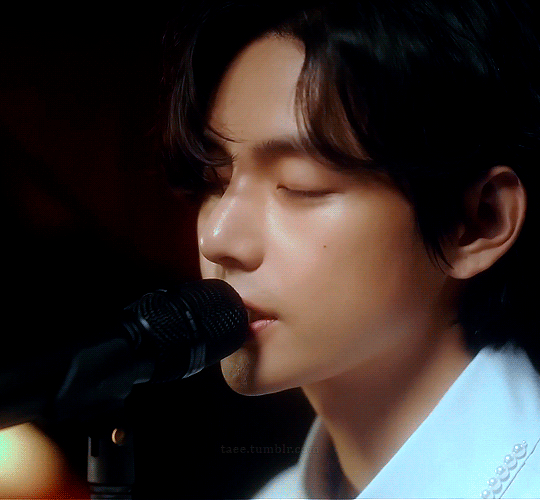
Then it really got serious with Layover. Specifically these pictures:

See this outfit rewired my brain.
Here's the thing: I'm a big girl and I've been uncomfortable in my skin and clothes for a long time. I'm also gay and that comes with a lot of style related baggage too. Don't dress too masculine, everyone will think you're a man-hating lesbian. You're wearing a dress, you don't SEEM gay.
It made me hate my style. Trying to dress to hide my figure but not look too baggy. Trying to be feminine but not too feminine, trying not to wear anything too masc, trying to be stylish, trying a lot of things that never worked for me. I have no gender dysphoria but I never felt happy in my clothes.
Then I saw a literal idol wearing baggy jeans and tee and looking so stylish with it and a switch flipped. Maybe a slender South Korean man isn't where I'd imagine finding inspiration as a British bisexualish plus size lesbian but I suddenly felt like a style was accessible to me. The jewellery, the effortless slouch... I tried it out and it sounds dramatic but it was like a fashion euphoria. I liked how I looked for maybe the first time ever. My tummy hidden but I still looked good and like I'd made an effort.
His queer coding is so important to me too. It doesn't matter to me what he turns out to be. His promotion of queer artists, films and music, genderless expression and demonstrated support for queer community, will always be important in helping me feel seen and valued regardless of whether his participation is as a queer man or as an ally.

And he has made me more accepting of my own neurodivergence. I'm a mum to a six year old. I do the school run and cook and pay my mortgage with my boring communications job and I'm really into BTS. It's a bit of an eyebrow raise for a lot of people. I'm not into diagnosing strangers but Tae's relentless ability to be himself, no matter how weird the rest of the world thinks he is, and being a hugely popular idol when the world tells you you can't be a bit of a free-thinker and successful at the same time... That's important!
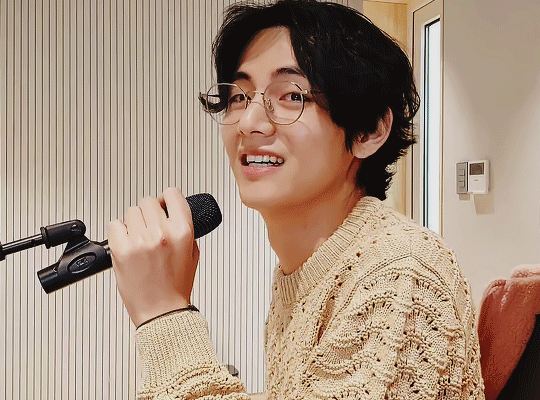
So yeah. The other guys have qualities that comfort me too but Taehyung has had a profound impact on things that needed fixing in my brain.
And that's why he's my best guy THE END ask me anything I'll talk about Taehyung for hours.
(I'm sorry I ever thought you were just a grump, Yoongi.)
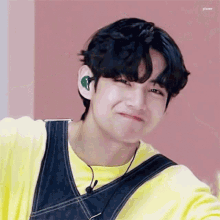
Are these dungarees/overalls backwards btw?
55 notes
·
View notes
Text
A New York Times columnist criticized "antiracist" guru Ibram Kendi’s philosophy as "reductionistic" and "strident" while slamming the academic institutions, businesses and donors that bought into the notion in the aftermath of George Floyd’s murder.
Times columnist Pamela Paul wrote on Thursday that institutions pushing Kendi’s school of thought were going "against the enlightened principles on which many of those institutions were founded — free inquiry, freedom of speech, a diversity of perspectives."
Paul’s column is the latest hit on Kendi, whose reputation has been damaged in recent weeks following news that his antiracism center at Boston University had undergone major layoffs.
In the fallout from these layoffs, workers came forward with bombshell allegations that the center "exploited" staff and "blew through" millions of dollars in grant money while failing to deliver on its promises.
Paul began her piece with comment on Kendi’s fall from grace and then continued with an examination of why so many cultural institutions bought into his mantras in the first place.
She wrote, "The recent turmoil at Ibram X. Kendi’s Center for Antiracist Research at Boston University, with more than half its staff laid off and half its budget cut amid questions of what it did with the nearly $55 million it raised, led to whoops of schadenfreude from Kendi’s critics and hand wringing from his loyal fans."
After noting how both right and left viewed Kendi, as either "what was right or wrong with America’s racial reckoning since the police murder of George Floyd," she wrote that it is "more interesting" that he was so propped up considering his "simplistic" ideas.
"More interesting is that many major universities, corporations, nonprofit groups and influential donors thought buying into Kendi’s strident, simplistic formula — that racism is the cause of all racial disparities and that anyone who disagrees is a racist — could eradicate racial strife and absolve them of any role they may have played in it," Paul wrote.
She rebuked these institutions, adding, "After all, this reductionist line of thinking runs squarely against the enlightened principles on which many of those institutions were founded — free inquiry, freedom of speech, a diversity of perspectives."
But because of their support, Paul added, "Kendi’s ideas gained prominence, often to the exclusion of all other perspectives."
After giving a brief history of how the racial thinker developed his ideas, the columnist claimed there are better, more nuanced ideas of confronting racism.
She first cited Kendi’s 2019 book, "How to Be an Antiracist," which was the basis for much of the antiracist thought that made him an often-cited expert in the George Floyd era.
Paula wrote, "In this book, Kendi made clear that to explore reasons other than racism for racial inequities, whether economic, social or cultural, is to promote anti-black policies. ‘The only remedy to racist discrimination is antiracist discrimination,' Kendi wrote, in words that would be softened in a future edition after they became the subject of criticism."
She summarized this assessment, adding, "In other words, two wrongs do make a right. As practiced, that meant curriculums that favor works by Black people over white people is one way to achieve that goal; hiring quotas are another."
Paula also noted how antiracism "requires a commitment" to "active opposition to sexism, homophobia, colorism, ethnocentrism, nativism, cultural prejudice and any class biases that supposedly harm Black lives. To deviate from any of this is to be racist. You’re either with us or you’re against us."
The columnist slammed these ideas, arguing that individuals can advocate less extreme positions and still be considered not racist. "Contra Kendi, there are conscientious people who advocate racial neutrality over racial discrimination. It isn’t necessarily naive or wrong to believe that most Americans aren’t racist," she said, adding, "To believe that white supremacists exist in this country but that white supremacy is not the dominant characteristic of America in 2023 is also an acceptable position."
Paula concluded the piece advocating for a "more nuanced and open-minded conversation around racism and a commitment to more diverse visions of how to address it."
99 notes
·
View notes
Text

The juxtaposition of actions and reactions in today's narrative climate demands a discerning and analytical gaze. Witnessing the explicit acts against us – from ethnic cleansing, unabashed calls for annihilation, waging wars, to the haunting echoes of cheers at our losses – starkly contrasts the claims of "Islamophobia" that follow. While every community deserves the right to voice concerns and seek understanding, it's crucial to sift through the narratives with a judicious lens. Not when such narratives attempt to overshadow a series of aggressive actions with an umbrella term, seeking empathy and validation.
It's astounding how the sequence of violence is conveniently obscured by adeptly pivoting the narrative focus, creating a smokescreen of victimhood, and then leveraging that position for further propagation of the same hostile ideologies. But what's more perplexing, and indeed concerning, is the ease with which these crafted stories find acceptance and endorsement.
We must question, are we so ensnared by the fear of appearing politically incorrect that we willingly suspend our logic and reason? Do we inadvertently become allies in their agenda by simply nodding along without challenge or critique? It's high time we ask ourselves these pressing questions.
For when you believe them, without questioning, without probing deeper into the layers of narrative manipulation, you indirectly become a pawn, validating and amplifying the very voices that rally against our existence. It's not about taking sides but about recognizing the intricacies of narratives and ensuring they are dissected, understood, and responded to with clarity, honesty, and justice.
In a world rife with carefully spun tales, it's our duty to be discerning listeners, rational thinkers, and staunch defenders of the unvarnished truth. Only then can we hope to break free from the manipulative chains of biased narratives and pave the way for genuine understanding and coexistence.
grouchomaccabee
#DiscerningNarratives#islamophobia#lies#israelunderattack#BeyondBias#SeekTheTruth#QuestionTheStory#BreakTheEcho#UnmaskAgendas#CriticalThinkingMatters#Israel#Jew#Judaism#Zionism#Grouchopresents
26 notes
·
View notes
Text
God emperor of Dune:
Frank needed to stop toying via Leto with the characters and the reader for the page count. It gets so so tedious. Just say what you mean, puhlease. I mean I love Leto the tortured 'god' who's still a kid at heart to bits and the journals aren't bad but the endless talking in circles while his counsellor wonders if he's going to get killed 🙄.
But the bits where Leto isn't attempting to speak in riddles are:
hunky Duncy getting all the ladies (he makes one climax just from watching his climbing skills),
a defence of gayness in the army that takes a U turn right back into hardcore homophobia and gender essentialist ick,
weirdo commentary about people somehow going soft and losing humanity if their life isn't 24/7 struggle?!?
Hate to break it to you Frank but historically those great writers, thinkers and inventors had a bunch of free time because the wife did the chores and they had a wealthy patron or undemanding job or *fake gasp* government grants and basic incomes. I believe you wrote one of these on a beach. Cooome ooon.
I do love Hwi and seeing Leto get some small joys, he even finds amusement in his end.
The tragedy is complete for me. No interest in rereading the sex magic dominatrix follow ups.
Spoilers and monster sex logistics under the cut
The book makes the assumption that he must have been right to make this sacrifice of himself and of mankind because that was the only way to survive but the question remains: are there flaws and biases to long term prescience? Especially by relying so heavily on the past and on your ancestors instead of bringing in imaginative minds, non rulers, people who are just good for the sake of being good...
Who's to say that 3500 years of teaching humanity couldn't be done by actually educating people. It's a patronizing and narrow view of pedagogy and empathy. What wonderful things we accomplish when given a collective problem and enough recourses to solve it.
Absolutely hilarious that the mega threat ends up solved a few books later by making friends with the machine sentience.
Woops. Leto should have watched Sesame Street instead of being tortured with LSD by his grandma.
--------
I must add some TMI: Leto spends quite a time lamenting not being able to have sex with Hwi so we get a Hwi Duncan sex scene before her wedding to Leto. Why? It's not that he's a giant worm, she's decided to love him anyway: It's no penis.
Now Leto is a gigantic worm who burns in water but his face and hands are still human and he has access to all sorts of ixian tech. His body vibrates naturally. He tells us he's visited all sorts of past orgies in his mind. He has lesbians as his personal guards. We know Hwi doesn't mind getting close to him. There is absolutely no reason why Leto couldn't give Hwi a series of megagasms and tap into her head by giving her some spice like the sietch communal trips.
He could do some internal cell searching, build a pleasure gland somewhere only Hwi would know about if he couldn't tap in to what she was feeling.
Herbert tried to build an impossible sex divide but instead revealed a complete lack of imagination/catholic cowardice so his martyr god could die technically a virgin. Or maybe just to give Duncan the sex scene.
3 notes
·
View notes
Note
Something that is always telling about the people bleating for a grand socialist revolution is how they never seem willing to actually do anything to build a proper foundation for such a thing. They constantly keep on telling the people in power about needing to immediately transition to a more just and socialist society, but they're always either:
Ignoring the very real difficulty of actually setting up that kind of society given just how hyper capitalistic our society is.
How much American society is heavily biased and indoctrinated against any sort of socialist boogeyman regardless of the validity of that.
Who's going to do all of the work to actually get to that point.
The last point is especially telling given our current fascist rising circumstances, because for every person online calling for a socialist revolution to fight back, none of them ever seem all that keen on actually taking part in the down and dirty parts of what such a revolution could entail. The bloodshed, the sacrifices, the knowledge that they might not even get to reap the rewards or have to deal with the inevitable consequences of revolution, but still do it anyways because they want a better future for everyone. Planting trees for future and all that.
They just want the glory and to be far in the back away from the actual fights, that someone has to fight. They, much like the fascists they supposedly stand against, want someone else to pay the price while they reap the reward.
I mean, yeah. It's all just performance theater. Social media has created an environment where you can look like a principled and courageous opposition figure just by bashing the Democrats all the time and posting calls to some nebulous Revolution!!! It doesn't have to connect, and usually doesn't, to anything whatsoever in the real world, because it creates its own self-sustaining universe and sense of reality. It's playing a video game and calling yourself a revolutionary in the real world. It's not the same thing at all.
As I said in earlier posts, it's just a reactive magical-thinking coping strategy. That on its own is not a bad thing. Believe me, I have many cherished daydreams about Mitch McConnell suddenly dying in a fire or even, in its slightly more realistic variation, the American people actually deciding to just stop voting for fascists because the only thing they care about is gas prices. However, neither of those things are likely to happen, and if I confuse my "everything bad will just magically disappear and people who think exactly like me will take over and make it perfect!" fantasies with the entirety of my political or pragmatic plans... yeah, that's not a good thing. It doesn't mean I'm an edgy mature free thinker etc etc. It means I just have no other ideas and can't face up to the actual reality.
Besides, as I have also said many times as a Tired Historian: ideological revolutions just never work. Never. If you're planning to overturn society just in the wishful-thinking notion that everyone will agree that you were right all along and do it your way from now on... yeah. It's not going to happen, and it will only hurt the most vulnerable people that you claim to be doing this for. I don't need to theorise about this; I know it's true because it's happened every time before. And no matter their delusions of grandeur, I do Not think that these ideologically and morally bankrupt circle-jerking useless terminally online dipshits are about to break that pattern. So. Yeah.
27 notes
·
View notes
Text
Doraemon Vol. 10 from The Complete Works of Fujiko F. Fujio
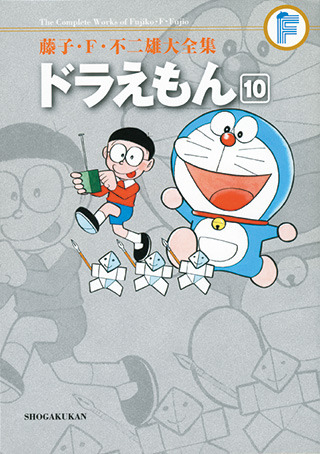
Halfway through this series! The stories here were published in 1977–1983. Some of the most iconic ones from this volume (as determined by my personal experience and biases):
"精霊よびだしうでわ" ("Spirit-summoning Bracelet", 1980): Nobita accidentally summons a snow spirit, who befriends him. However, the arrival of spring will cause her to disappear, and she is determined to not ever let that happen.
"竜宮城の八日間" ("Eight Days at the Dragon God's Palace", 1980): Nobita and his friends investigate the truth behind the Japanese folktale of Urashima Tarō.
"異説クラブメンバーズバッジ" ("Fringe Theory Club Member Badge", 1980): Suneo makes fun of Nobita for believing in underground people, so Doraemon uses the Fringe Theory Club Microphone to create an alternate reality where Hollow Earth is real, and builds a civilization underground. This story was later used as the basis for the movie Nobita's Chronicle of the Moon Exploration, though the main setting was changed from the Earth's interior to the moon.
"羽アリのゆくえ" ("Whereabouts of Winged Ants", 1981): Nobita finds an ant alate in his room and sets her free in his yard. He begins observing her new colony, saves a worker ant from an antlion larva, and watches them take in a myrmecophilous caterpillar. Nobita becomes so engrossed in the ants' activities that Doraemon tries to get Shizuka and Dekisugi to talk him out of it, only for them to get hooked on ant-watching as well.
"むすびの糸" ("Thread of Fate", 1981): Nobita wants to apologize to Shizuka after an argument, so Doraemon gives him a thread that will draw the two of them close enough to talk it out. The trouble is that Nobita needs to get near enough to attach the thread to Shizuka in the first place…
"思いだせ! あの日の感動" ("Remember! The Feeling of That Day", 1982): Nobita feels like there's no point to doing anything, so Doraemon feeds him a pill that makes him experience everything as though it were happening to him for the first time.
"しずちゃんの心の秘密" ("Shizuka's Deepest Secret", 1982): Nobita tries to figure out what to give Shizuka for her birthday. He learns that her favorite food is roasted sweet potatoes and prepares a bunch for her… but it turns out that she's ashamed of it and doesn't want anyone else to know. Whoops.
"のび太もたまには考える" ("Nobita Also Thinks Sometimes", 1983): Despite having misgivings, Doraemon lets Nobita take his Ability Cassettes, which can grant the user with expertise in a variety of fields. After Nobita uses the "thinker" cassette, however, he comes to the realization that he is growing too reliant on the cassettes and decides to return them to Doraemon.
5 notes
·
View notes
Text
Importance of Reasoning: The Art of Thinking Well

Reasoning is more complicated than it seems at first glance. It is not merely an intellectual pursuit but a way of life that includes logic, belief, ethics, and emotion. With this new understanding of mental processes, we can better design the world around us to promote better reasoning and more logical choices. Here are some ways to incorporate reasoning into your life.
corporating reasoning into our lives is crucial for success in various areas of life. It helps us to make sound decisions, communicate effectively, and grow and develop as individuals. By cultivating this skill, we can become more confident and capable individuals who are better equipped to navigate the challenges of life.
Importance of Reasoning: The Art of Thinking Well
What is reasoning?
Reasoning is the process of using logic and critical thinking to make informed decisions and solve problems. It involves analyzing and evaluating information, considering different perspectives and options, and making judgments based on evidence and reasoning. Reasoning is an important cognitive skill that is used in all areas of life, from personal decision-making to professional problem-solving.
It is essential for making sound judgments and developing effective solutions to complex problems. In essence, reasoning allows us to make sense of the world around us by applying logic and critical thinking to make informed decisions.
Reasoning is a vital component of living a happy and fulfilling life. We do it every day. Logic and rationality allow us to make decisions and solve problems. Reasoning is the tool we use to make sense of the world.
We use reasoning when we decide what to wear, where to live, how to spend our free time, and who to spend time with. It's a way of thinking that we use every day to figure out what we believe and want.
Reasoning is something we can improve through practice and education. When we improve our reasoning skills, we become better thinkers and feel more fulfilled in our lives. We can't avoid reasoning!
The Significance of Critical Thinking
Critical thinking is a fundamental aspect of reasoning that involves analyzing information, questioning assumptions, and evaluating arguments. In an era of misinformation and fake news, honing critical thinking skills is essential to distinguish fact from fiction.
Studies have shown that individuals with strong critical thinking abilities are better equipped to make sound judgments, solve problems effectively, and adapt to changing circumstances.
Enhancing Logical Reasoning
Logical reasoning is another integral component of the art of thinking well. It enables individuals to construct valid arguments, identify fallacies, and draw logical conclusions. Developing strong logical reasoning skills fosters clear and coherent thinking, facilitating effective communication and persuasive abilities.
Moreover, logical reasoning helps individuals identify potential biases and make informed decisions based on evidence and rationality.
The Role of Decision-Making
Skills Reasoning and decision-making go hand in hand, as the ability to make informed choices is an essential outcome of sound reasoning. Effective decision-making skills involve gathering relevant information, considering various perspectives, weighing pros and cons, and anticipating potential outcomes.
Individuals with well-honed decision-making skills are more likely to make thoughtful choices that align with their goals and values, leading to better outcomes and minimized regrets.
How do Emotions affect our Thinking?
How do emotions affect reasoning? Emotions can distort how we think. When we feel an intense emotion, it's more difficult to think deeply about the topic at hand. This can lead to poor reasoning. For example, say you are in the middle of a heated debate with your spouse, and you find out that they have been a misunderstanding between both of you.
You might not be able to think about anything but the fact that they were unfaithful. Your anger distorts your reasoning and prevents you from thinking about other reasons why they might have cheated on you. You might think that you're never going to get married again because of this experience.
This is one of the instances of how emotions can affect our reasoning. If we want to reason better, we need to take emotional values into account. The more intensity you have in your emotion, the less likely you will think logically.
How does Limited Attention Impact our Reasoning?
With limited attention, we are in a constant state of information overload. And it shows in the way we think. There are so many stimuli bombarding us at any given moment that it is impossible to process them all. We need to pick and choose what to focus on. But when our attention is limited, it cannot be easy to make rational decisions.
For example, one study found that shoppers are less likely to buy healthy food when they are in a hurry. With limited attention, people are less likely to think critically about their choices.
For example, they are more likely to purchase fast food, even when they know it's not the healthiest option. If we want to make a proper decision, we need to be aware of how limited attention affects our reasoning process and avoid this mental trap.
One way to do this is by taking a break every once and a while and refocusing your attention on something else. It will be difficult to avoid the temptation of instant gratification, but taking time for yourself will accept you to make better decisions in the long run. To learn more about how little attention impacts reasoning and how it can be improved, read on!
What are the Consequences of these Observations for Designing a World that Promotes Better Reasoning?
The implication of these findings for designing a world that promotes better reasoning is to prioritize our ability to reason well. When designing a world that promotes better reasoning, it is essential to make it easier for people to make logical decisions. For example, you could make it easier for people to make clear and straightforward choices.
You can do this by taking benefit of our tendency for "choice paralysis" and creating limited options. Another way to design a world that promotes better reasoning is by providing space and time for people and minimizing distractions. This will allow people to think more clearly.
To Read This Full ARTICLE, Click Here
#importanceofreasoning#whyisreasoningisimportant#whatisreasoning#improvereasoningskills#promotebetterreasoning
0 notes
Text
WHY ECON?
As much as I am usually hooked on surfing through music channels on the idiot box in my leisure time, I truly admit what really makes me all the more glued to my television set are the business channels. I verily take delight in spending time watching these channels. In fact, I do have a few favourite programs too that I take utmost pleasure in watching being Commodity Champions, India Business Hour, Global Eye of TV 18 and The Money Show of ET Now to name a few.

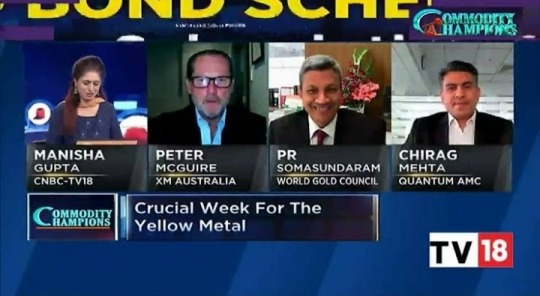

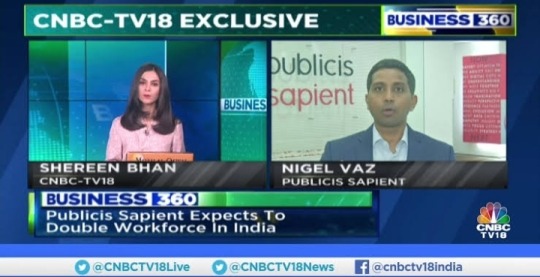
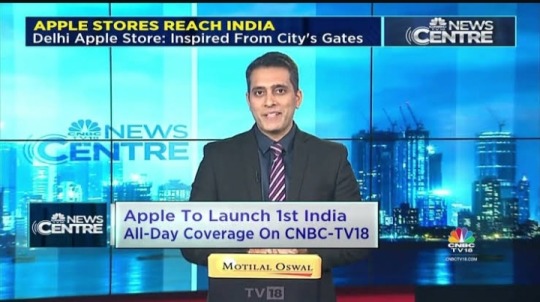
I guess that is when I became aware of the fact how economics plays an essential role in our daily lives and why everyone must at least know its rudiments. Some students find it a dry subject while some find it challenging as one would have to spend hours reading and learning about concepts, including research techniques and quantitative analysis. However, some take it up for the myriad benefits it offers as a subject, the huge range of skills one might gain from an Econ degree to the exciting types of employment one might be geared for, being a few.

Most economic books carry definitions of "economics" akin to the ones published in the others with the slightest of variations, the primary definition being, "The study of scarcity and how it affects the use of resources, the production of goods and services, the growth of production and well-being over time, and many other important and complicated issues that affect society.", divided generally into two main parts, microeconomics and macroeconomics.
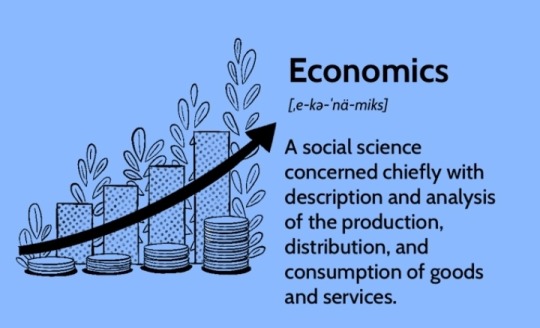
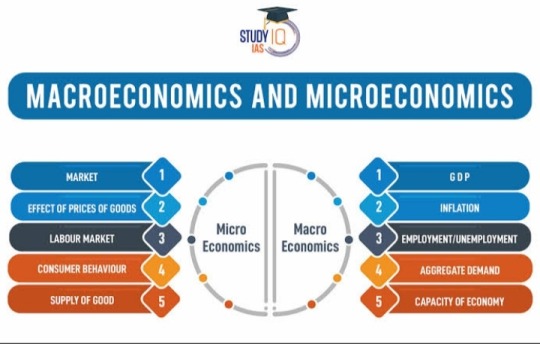
While studying economics makes one ready for a career as an economist, it also assists in nurturing the development of invaluable hard and soft skills, including critical thinking, communication, numeracy, research skills, data analysis, time management, teamwork, problem-solving, computing, and commercial and cultural. Environmental economics is yet another field of study. It is very intriguing as a matter of fact to notice how closely economics and environment are intertwined, something that environmentalists might find enthralling.


Environment and economics are two concepts that go hand in hand. Many renowned economists believe that a better environment helps a lot in strengthening the economy of the country. The environment provides lots of free natural resources to the economy like fossil fuels, ores, minerals, light, air, water, etc. While in return the economy of a country invests a lot in conserving the environment by finding substitutes for natural resources. This gives rise to the notion of sustainable development. There are three pillars of sustainability – economic viability, environmental protection and social equity. Sustainable development is something that has set the internet traffic abuzz, being on everyone's tongue.
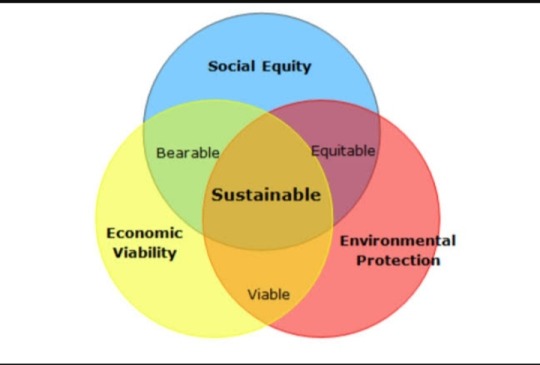
So why study economics? The study of economics helps people interpret the world around them. It facilitates one to fathom people, businesses, markets and governments, and thereby better respond to the threats and opportunities that emerge when things change. Concepts such as supply and demand, market demand, willingness of the customer to pay, cognitive biases and key strategies like the Porter's Five Forces, SWOT Analysis and Core Competencies are a must know. Econ might assist one in making the right decisions at times of dearth in resources. All said and done learning about economics helps one understand the major problems facing the world today, prepares one to be a good citizen, and helps one become a well-rounded thinker!
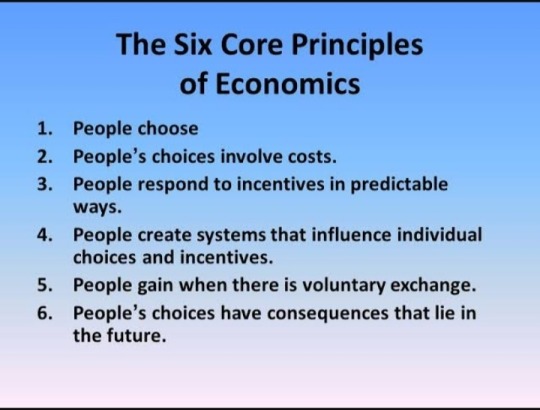
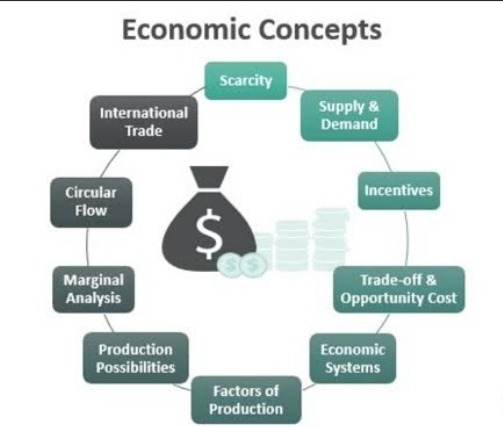
0 notes
Text
🎉Astro observations/notes
astrology notes by Dalia
Happy September! While I’m preparing some interesting series for this brand new blog, here I leave you some of my favorite astro observations as my very first astrology post! (these are the opinions/observations I’ve collected during the years I’ve been studying charts, they don’t have to apply to everybody, remember that astrology is more complex than that)
Credit: Tumblr blog @astrobydalia
Earth risings will never rush for anything no matter what, specially taurus risings, they have a super chill and slow vibe to them. Earth risings just have that “can’t be bothered” vibe. Wether they ACTUALLY give a fuck or not depends on the moon and mars specially. 🚶🏻♂️
Virgo risings have a very “controlled” way of presenting themselves. They will portray a composed look no matter how they actually feel on the inside (they have the BEST poker face). Due to this, they can sometimes have mannerisms or facial expressions that look calculated or practiced. They legit look like this emoji sometimes 🙂
Mercury in the 4th people have a very biased way of thinking. They’re the type of people to not accept any opinions or ideas from somebody they don't like/did them or their loved ones wrong.
On the other hand, Mercury in the 10th are the total opposite. They are very practical thinkers and will take any opportunity to learn anything from anyone for the sake of improvement. They could be the the type of people to learn from their enemies or from the people that are above them just to end up surpassing them after some time.
11th house stellium culture: easily giving in to peer pressure. They tend to do what the majority does and have that “everybody does it so it’s okay” type of mentality specially if it’s paired with air energy
I have noticed that specially in women’s charts, the Venus sign can point to some of the prominent characteristics in their kids (specially daughters). I’ve noticed this is because your Venus sign is likely the values you will directly or indirectly pass on to your kids.
You will feel most instantly upset when people “attack” your rising, because you’ll feel your basic expression hindered. For ex. if you’re a Gemini rising you could be instantly upset when people tell you to shut up, how you feel about that will depend on your moon and how you react or “fight back” will depend on your mars.
Saturn overlays in the 5th house in synastry makes the relationship very stiff and awkward. Even if the rest of the synastry points to a loving relationship, you could find it very hard to have fun together and the house person in particular will see the Saturn person as way too serious or a party popper and the Saturn person may not understand the house person’s sense of humor
Air risings/dominants LOVE avatar games. I guess they like the idea of identifying with a fictional persona or with a conceptual version of themselves. They may like the part of creating their avatar even more than actually playing lol
Speaking of fictional, people with Venus/Moon aspecting Uranus fall for fictional characters. Describe them their perfect person and they already fall in love with the mere description bc they fall for the concept of a certain type of person (specially true if Venus/Moon are in an air sign)
On the other hand, Venus/Moon aspects to Neptune fall for celebrities or people who are unavailable/unreachable. They take a real person and project their fantasies on that person. It’s almost as if that person is the perfect canvas for them to paint their perfect fantasy romance
Credit: Tumblr blog @astrobydalia
Feel free to drop your own observations/opinions it’s always interesting to hear. I’m thinking of doing one astro observation post once a month or so idk, let me know how you like them!
#astrology#astro#astro observations#astro notes#zodiac#earth placements#earth signs#fire signs#air signs#earth rising#earth risings#zodiac signs#virgo rising#mercury in the 4th#11th house#stellium#11th house stellium#venus signs#venus sign#rising sign#mars signs#moon sign#ring signs#venus aspects#moon aspects#air rising#air dominanat#synastry#5th house overlay#saturn synastry
1K notes
·
View notes
Note
Have you read "An Apology to JK Rowling" by Petra Bueskens on Areo? I'm pathetically grateful to read something so clever and well articulated on the subject after the amount of abuse JK has been subjected to
It's a great piece so here it is, thank you anon!
Rowling recently published an eminently reasonable, heartfelt treatise, outlining why it is important to preserve the category of woman. There’s only one thing wrong with it: it assumes a rational interlocutor. Rowling outlines why the biological and legal category of sex is important: in sports, in rape crisis shelters, in prisons, in toilets and changing rooms, for lesbians who want to sleep with natal women only and at the level of reality in general. Rowling marshals her experiences as an androgynous girl, as a domestic violence and sexual assault survivor and as someone familiar with the emotional perils of social media, in ways that have resonated with many women (and men). Her writing is clear, unpretentious, thoughtful, moving, vulnerable and honest. At no point does she use exclusionary or hostile language or say that trans women do not exist, have no right to exist or that she wants to rob them of their rights. Her position is that natal women exist and have a right to limit access to their political and personal spaces. Period.
Of course, to assume that her missive would be engaged with in the spirit in which it was intended, is to make the mistake of imagining that the identitarian left is broadly committed to secular, rational discourse. It is not. Its activist component has transmogrified into a religious movement, which brooks no opposition and no discussion. You must agree with every tenet or else you’re a racist, sexist, transphobic bigot, etc. Because its followers are fanatics, Rowling is being subjected to an extraordinary level of abuse. There seems to be no cognitive dissonance among those who accuse her of insensitivity and then proceed to call her a cunt, bitch or hag and insist that they want to assault and even kill her (see this compilation of tweets on Medium). She has been accused of ruining childhoods. Some even claim that the actor Daniel Radcliffe wrote the Harry Potter books—reality has become optional for some of these identitarians. Rowling’s age, menstrual status and vagina come in for particularly nasty attention and many trans women (or those masquerading as such) write of wanting to sexually assault her with lady cock, as a punishment for speaking out. I haven’t seen misogyny like this since Julia Gillard became our prime minister.
The Balkanisation of culture into silos of unreason means that the responses have not followed what might be loosely called the pre-digital rules of discourse. These rules assume that the purpose of public debate is to discern truth and that interlocutors on opposing sides—a reductionist bifurcation, because, in fact, there are many sides—engage in argument because they are interested in something higher than themselves: an ideal of truth, no matter how complicated, multifaceted and evolving. While in-group preferences and biases are inevitable, these exist within an overarching deliberative framework. This style of dialogue assumes the validity of a persuasive argument grounded in reason and evidence, even if—as Rowling does—it also utilises experience and feeling. By default, it assumes that civil conflict and opposition are essential devices in the pursuit of truth.
Three decades of postmodernism and ten years of Twitter have destroyed these conventions and, together with them, the shared norms by which we create and sustain social consensus. There is no grounding metanarrative, there are no binding norms of civil discourse in the digital age. Indeed, as Jaron Lanier shows with his bummer paradigm (Behaviours of Users Modified and Made into an Empire for Rent) social media is destroying the fabric of our personal and political lives (although, with a different business model and more robust regulation, it need not do so). The algorithm searching for and recording your every click, like and share, your every purchase, search term, conversation, movement, facial expression, social connection and preference rewards engagement above all else—which means that your feed—an aptly infantile descriptor—will quickly become full of the things you and others like you are most likely to be motivated to click, like and share. Outrage is a more effective mechanism through which to foster engagement than almost anything else. In Lanier’s terms, this produces a “menagerie of wraiths”—a bunch of digitised dementors: fake and bad actors, paid troll armies and dyspeptic bots—designed to confect mob outrage.
The norms of civil discourse are being eroded, as we increasingly inhabit individualised media ecosystems, designed to addict, distract, absorb, outrage, manipulate and incite us. These internecine culture wars damage us all. As Lanier notes, social media is biased “not towards the left or right but downwards.” As a result, we are witnessing a catastrophic decline in the standards of our democratic institutions and discourse. Nowhere is this more evident than in the contemporary culture wars around the trans question, where confected outrage is the norm.
This is why the furore over Rowling’s blog post misses the point: whether we agree with her or not, the problem is the collapse of our capacity to disagree constructively. If you deal primarily in subjective experience and impulse-driven reaction, under the assumption that you occupy the undisputed moral high ground, and you’ve been incited by fake news and want to signal your allegiances to your social media friends, then you can’t engage in rational discussion with your opponent. Your stock in trade will be unsubstantiated accusations and social shaming.
In this discombobulating universe, sex-based rights are turned into insults against trans people. Gender-critical feminists are recast as immoral bigots, engaged in deliberately hurtful, even life-threatening, speech. Rowling is not who we thought she was, her ex-fans wail, her characters and plots conceal hidden reservoirs of homophobia and bigotry. A few grandstanders attempt to distinguish themselves by saying that they have always been able to smell a rat—no, not Scabbers—and therefore hated the books from the outset. Nowhere amid this morass of moral grandstanding and outrage is there any serious engagement with her ideas.
Those of us on the left—and left-wing feminists in particular—who find trans ideology fraught, for all the reasons Rowling outlines, are a very small group. While Rowling is clearly privileged, she has also become the figurehead of a rapidly dwindling and increasingly vilified group of feminists, pejoratively labelled terfs, who want to preserve women’s sex-based rights and spaces. Although our arguments align with centrist, conservative and common sense positions, ours is not the prevailing view in academia, public service or the media, arts and culture industries, where we are most likely to be located (when we are not at home with our children). In most of these workplaces, a sex-based rights position is defined a priori as bigoted, indeed as hate speech. It can get us fired, attacked, socially ostracised and even assaulted.
As leftist thinkers who believe in freedom of speech and thought, who find creeping ideological and bureaucratic control alarming, we are horrified by these increasingly vicious denunciations by the left. The centre right and libertarians—the neo-cons, post-liberals and the IDW—are invariably smug about how funny it is to watch the left eat itself. But it’s true: some progressive circles are now defined by a call out/cancel culture to rival that of the most repressive of totalitarian states. Historically, it was progressives who fought against limits on freedom of speech and action. But the digital–identitarian left split off from the old print-based left some time ago, and has become its own beast. A contingent of us are deeply critical of these new directions.
Only a few on the left have had the gumption to speak up for us. Few have even defended our right to express our opinions. Those who have spoken out include former media darlings Germaine Greer and Michael Leunig. Many reader comments on left-leaning news sites claim that Rowling is to blame for the ill treatment she is suffering. Rowling can bask in the consequences of her free speech, they claim, as if having a different opinion from the woke majority means that she is no longer entitled to respect, and that any and all abuse is warranted—or, at least, to be expected. Where is the outrage on her behalf? Where are the writers, film makers, actors and artists defending her right to speak her mind?
Of course, the actors from the Harry Potter films are under no obligation to agree with JK Rowling just because she made them famous. They don’t owe her their ideological fealty: but they owe her better forms of disagreement. When Daniel Radcliffe repeats the nonsensical chant trans women are women, he’s not developing an argument, he’s reciting a mantra. When he invokes experts, who supposedly know more about the subject than Rowling, he betrays his ignorance of how contested the topic of transgender medicine actually is: for example, within endocrinology, paediatrics, psychiatry, sociology, and psychology (the controversies within the latter discipline have been demonstrated by the numerous recent resignations from the prestigious Tavistock and Portman gender identity clinic). The experts are a long way from consensus in what remains a politically fraught field.
Trans women are women is not an engaged reply. It is a mere arrangement of words, which presupposes a faith that cannot be questioned. To question it, we are told, causes harm—an assertion that transforms discussion into a thought crime. If questioning this orthodoxy is tantamount to abuse, then feminists and other dissenters have been gaslit out of the discussion before they can even enter it. This is especially pernicious because feminists in the west have been fighting patriarchy for several hundred years and we do not intend our cause to be derailed at the eleventh hour by an infinitesimal number of natal males, who have decided that they are women. Now, we are told, trans women are women, but natal females are menstruators. I can’t imagine what the suffragists would have made of this patently absurd turn of events.
There has been a cacophony of apologies to the trans community for Rowling’s apparently tendentious and hate-filled words. But no one has paused to apologise to Rowling for the torrent of abuse she has suffered and for being mischaracterised so profoundly.
So, I’m sorry, JK Rowling. I’m sorry that you will not receive the respectful disagreement you deserve: disagreement with your ideas not your person, disagreement with your politics, rather than accusations of wrongspeak. I’m sorry that schools, publishing staff and fan clubs are now cancelling you. And I’m sorry that you will be punished—because cancel culture is all about punishment. I’m sorry that you are being burned at the digital stake for expressing an opinion that goes against the grain.
But remember this, JK—however counterintuitive this may seem to progressives, whose natural home is on the fringe—most people are looking on incredulously at the disconnect between culture and reality. Despite raucous protestations to the contrary, you are on the right side of history—not just because of the points you make, but because of how you make them.
414 notes
·
View notes
Text
“The Value of Being a Media and Information Literate Individual”
With the growth of social media, Filipinos had gotten enticed to the platform, particularly in Facebook, Twitter, and other social media platforms that had taken over people's lives. Being literate in media and information will offer us an edge in today's contemporary world, especially in giving and receiving information. We will be able to identify the majority of false and accurate information in various types of media, particularly Facebook. One should learn how to ask the right questions by observing, reading, or listening. Being a critical thinker, one must locate whether the information is required or have the capacity to seek, analyze, and use that information. It is crucial to use current and past information in media with intelligence to analyze information and decide if it is the best info for our purpose. Especially now in our situation, being at home due to this pandemic made us more likely to use the media. Many ways have changed because of the problem we are all facing right now, like the new routine, social distancing (to prevent the spread of the virus), and a new way of learning for students (online class and modular). In this generation, technology and media play a big part in everyone's lives.
Nowadays, we are overwhelmed with information, so literacy necessitates knowing what to say to oneself. At the same time, recognizing factual data, accurate information, fake news, and biased facts is a crucial element of becoming media and information literate. There will be no ought to be anxious about utilizing media and information if everybody knows Media and Information Literacy. We can make our claim choices and decisions off chance if we have those media information abilities. It is vital to be an individual who knows media and information literate because this enables us to understand the different parts of those messages that we can get or receive from television, radio, the internet, and other media. This will help us to evaluate information correctly based on our knowledge to help resolve problems or accomplish its purpose. Individuals can identify themselves precisely creatively and viably. It will also encourage us to think logically and will lead us to become responsible social media users. We will have a sophisticated approach not to be easily persuaded by misleading information due to this. It encourages everyone to actively participate in conversations that improve our abilities and allow people to voice their opinions responsibly. Perks are that it helps in the growth of our society being free, automated, has varied social sites with an open and accessible platform.
3 notes
·
View notes
Text
"The Value of being a Media and Information Literate Individual"
With the growth of social media, Filipinos have gotten enticed to the platform, particularly at a period where Facebook, Twitter, and other social media platforms had taken over people's life. Being literate in media and information will offer us an edge in our contemporary world today, especially in terms of giving and receiving information, as we will be able to identify the majority of false and true information in various types of media, particularly Facebook. One should learn how to ask the proper questions through what you're observing, reading, or listening to. Being a critical thinker, one must really be able to locate whether information is required or have the capacity to seek, analyze, and use that information. It is important so one is able to use current and past information in media with intelligence. For us to analyze information and decide if it is the best info for our purpose. Especially now in our situation, being at home all the time due to this pandemic really made us more likely to use the media. Many ways have been changed because of the situation that we are all facing right now like the new normal, social distancing (to prevent the spread of the virus), and a new way of learning for students (online class and modular). In this generation, technology and media plays a big part in everyone’s lives.
Nowadays, we are overwhelmed with information, so literacy necessitates knowing what to say to oneself. At the same time, recognizing what is factual data, accurate information, fake news, and biased facts is an important element of becoming a media and information literate. There will be no ought to be anxious of utilizing media and information if everybody is MIL. We are able to make our claim choices and decisions on the off chance that we have those media information abilities. It is important to be an individual whose media and information literate because this enables us to understand the different parts of those messages that we can get or receive from television, radio, internet, and other media. This will helps us to evaluate information correctly based on one’s knowledge that will help to resolve problems or to successfully accomplish its purpose. Individuals have the capacity to precise themselves creatively and viably. It will also encourage us in thinking logically and will lead us in becoming a responsible social media user. We will have a sophisticated approach to not be easily persuaded by misleading information as a result of this, and it encourages everyone to actively participate in conversations that will improve our abilities and allow people to voice their opinions in a responsible manner. Perks is that, it helps in the growth of our society being free, self-regulating, has varied social sites with an open and accessible platform.
2 notes
·
View notes
Text
“The Value of Being a Media and Information Literate Individual”
With the growth of social media, Filipinos have gotten enticed to the platform, particularly at a period where Facebook, Twitter, and other social media platforms had taken over people's life. Being literate in media and information will offer us an edge in our contemporary world today, especially in terms of giving and receiving information, as we will be able to identify the majority of false and true information in various types of media, particularly Facebook. One should learn how to ask the proper questions through what you're observing, reading, or listening to. Being a critical thinker, one must really be able to locate whether information is required or have the capacity to seek, analyze, and use that information. It is important so one is able to use current and past information in media with intelligence. For us to analyze information and decide if it is the best info for our purpose. Especially now in our situation, being at home all the time due to this pandemic really made us more likely to use the media. Many ways have been changed because of the situation that we are all facing right now like the new normal, social distancing (to prevent the spread of the virus), and a new way of learning for students (online class and modular). In this generation, technology and media plays a big part in everyone’s lives.
Nowadays, we are overwhelmed with information, so literacy necessitates knowing what to say to oneself. At the same time, recognizing what is factual data, accurate information, fake news, and biased facts is an important element of becoming a media and information literate. There will be no ought to be anxious of utilizing media and information if everybody is MIL. We are able to make our claim choices and decisions on the off chance that we have those media information abilities. It is important to be an individual whose media and information literate because this enables us to understand the different parts of those messages that we can get or receive from television, radio, internet, and other media. This will helps us to evaluate information correctly based on one’s knowledge that will help to resolve problems or to successfully accomplish its purpose. Individuals have the capacity to precise themselves creatively and viably. It will also encourage us in thinking logically and will lead us in becoming a responsible social media user. We will have a sophisticated approach to not be easily persuaded by misleading information as a result of this, and it encourages everyone to actively participate in conversations that will improve our abilities and allow people to voice their opinions in a responsible manner. Perks is that, it helps in the growth of our society being free, self-regulating, has varied social sites with an open and accessible platform.
3 notes
·
View notes